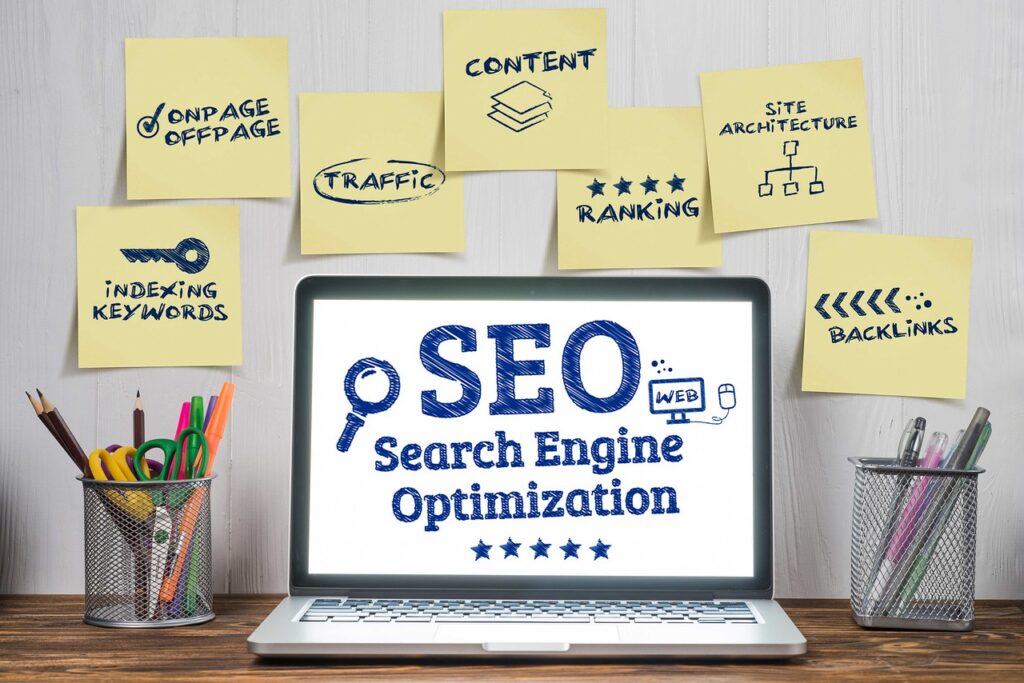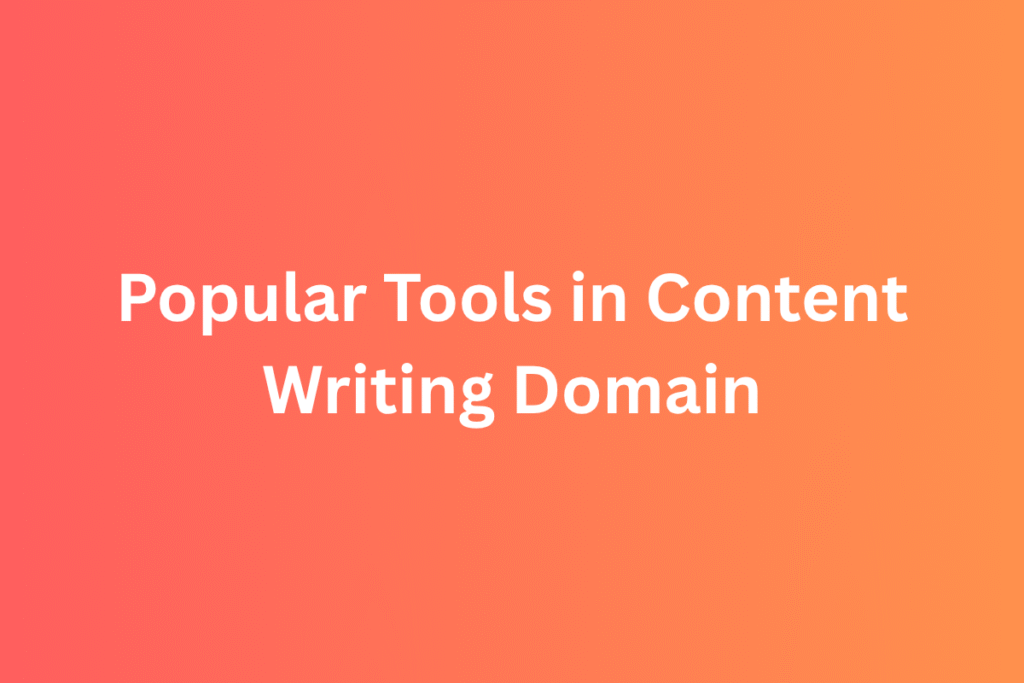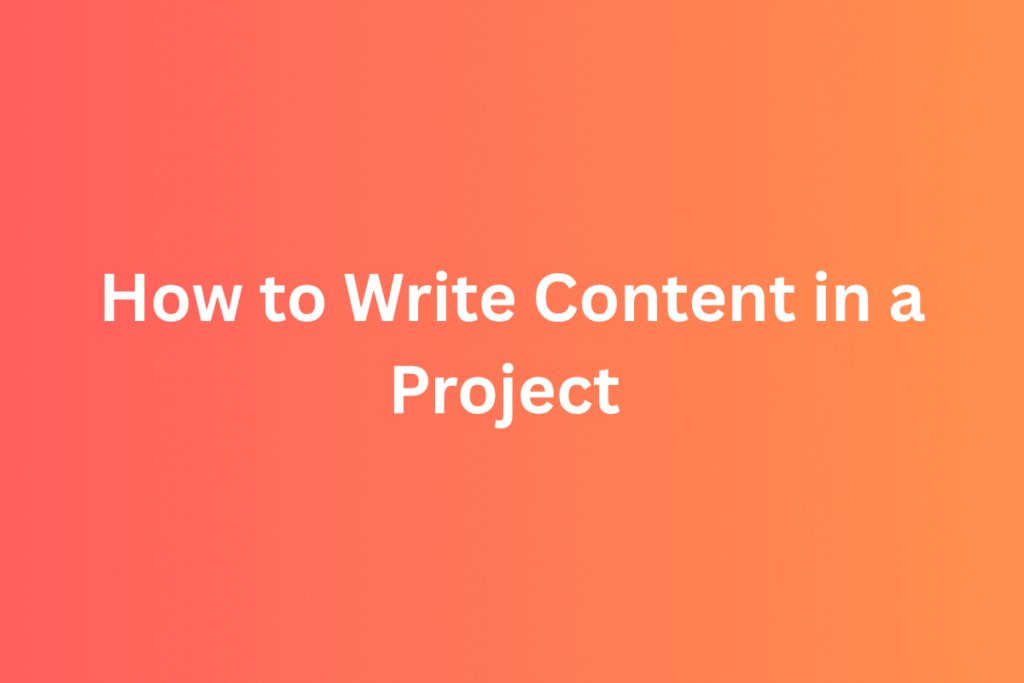AI is everywhere now in tools, in apps, and yes, even in blog writing. But the big question many bloggers and marketers ask today is this:
“Is AI content actually good for SEO?”
The short answer: Yes, but only if done right.
In this article, I’ll break it down in simple terms. Just real talk about what I’ve seen in my blogging journey, what works, and what doesn’t. We’ll also explore whether Google loves or hates AI content, and how you can make it work for your blog or business website.
What Does “AI Content” Mean?
Before we get deeper, let’s be clear about what AI content is.
AI content refers to any text generated using AI writing tools like ChatGPT, Jasper, Copy.ai, Writesonic, etc. These tools can write blog posts, product descriptions, FAQs, landing pages, social media captions almost anything.
It feels magical at first. You enter a prompt, and boom you get a full article. But the real question is can you just copy-paste it and rank on Google?
Let’s talk about that.
What Google Says About AI Content
Google has officially said that:
“Using AI doesn’t go against our guidelines, as long as the content is helpful, original, and written for people, not just to manipulate rankings.“
That’s the key point.
Google doesn’t care if your content is written by a human or a robot. It only cares whether it’s:
- Helpful to the reader
- Original and not duplicated
- Fulfills search intent
- Trustworthy and accurate
So technically, AI content is fine if it adds value.
But let me tell you something from my personal SEO experience…
What I Observed From My Blog
I run blogs and websites. I’ve experimented with both human-written and AI-assisted content.
Here’s what I noticed:
- Some of my blog posts written with the help of AI but heavily edited by me are ranking on Page 1 of Google.
- But the ones I published straight from an AI tool without editing? They’re either stuck on Page 3 or not indexed at all.
- Interestingly, a few AI-written posts (not ranking high) still bring traffic from Google Discover or AI Overviews especially when the topic is trending.
This showed me a clear thing:
Google rewards content that is accurate, well-structured, and written with the reader in mind — AI or not.
When AI Content Helps SEO
Let’s talk about the positive side first.
1. Faster Content Production
AI tools help you write faster. You can go from idea to draft in minutes. For SEO, speed matters when you’re:
- Covering trending topics
- Publishing multiple blog posts
- Creating supporting content for a main keyword
More content means more chances to rank but only if the quality is there.
2. Keyword Inclusion Made Easy
AI tools can naturally include long-tail keywords if prompted correctly. They can also help you structure your H1s, H2s, and even generate meta descriptions, FAQs, and CTAs.
3. Useful for Research and Outlines
Even if you don’t use AI to write your full post, it’s a great assistant for:
- Creating blog outlines
- Finding subtopics
- Suggesting FAQs or ideas you missed
In that way, it supports your SEO workflow and saves time.
4. Content for Supporting Pages
Let’s say you want to create product category pages, affiliate listicles, or topic clusters. AI can help write base drafts which you can later refine a great way to scale your site’s SEO.
When AI Content Hurts SEO
Now let’s get real. Here’s when AI content becomes a problem.
1. Low-Quality, Generic Content
If you publish AI-generated content without reviewing, chances are:
- It will sound robotic
- It will repeat the same points found on top 10 blogs
- It won’t satisfy the searcher’s actual question
And trust me, Google is smart enough to know when you’re just rephrasing existing content.
2. Inaccurate or Misleading Info
AI tools sometimes “hallucinate” facts. They might mention wrong stats, fake data, or outdated strategies. This damages trust and can get your content flagged by Google’s algorithms especially for YMYL (Your Money Your Life) topics.
3. Overusing AI = No Originality
Google loves unique perspectives. If your blog post sounds like every other article, even with correct keywords, you won’t stand out. AI struggles to write with real experience, personal insights, or case studies.
That’s why I always say:
Use AI to assist, not replace your voice.
What Kind of AI Content Google Ranks
After watching hundreds of blogs, here’s the pattern I’ve seen:
| Type of Content | Does AI Work? | Notes |
|---|---|---|
| How-to Guides | ✅ Yes (with editing) | Add real steps, screenshots |
| Product Descriptions | ✅ Yes | Needs to be keyword-rich but human-friendly |
| Personal Opinions | ❌ No | AI can’t replicate human experience |
| Affiliate Reviews | ⚠️ Maybe | Needs strong editing, trust signals |
| Listicles (Top 10 etc.) | ✅ Yes | Add unique intro, tips, links |
| Medical / Finance | ❌ Risky | Needs expert review or author credibility |
So, AI is a tool not a shortcut.
How to Make AI Content SEO-Friendly
Here’s my actual workflow that works well for SEO:
Step 1: Start With Keyword Research
Don’t let AI choose the topic for you. Use tools like:
- Google Search Console
- Keywords Everywhere
- Ubersuggest
Find what your readers are actually searching for.
Step 2: Use AI for Rough Draft
Use AI tools to create a first draft, outline, or intro. But remember:
- Keep prompts specific
- Guide the tone and structure
- Ask for a unique angle
Example Prompt:
“Write a blog intro about ‘how to start a fitness blog’ in a friendly tone, including common beginner mistakes.”
Step 3: Edit Like a Human
Now comes the real SEO magic:
- Add real examples
- Fix the flow and grammar
- Improve headings (H2s & H3s)
- Include internal links
- Insert facts and data from trusted sources
Step 4: Add Originality
Here’s where most bloggers go wrong. They skip this.
Make your post yours by adding:
- Personal story
- Case study
- Reader questions
- Quotes or opinions
Step 5: Optimize On-Page SEO
Once the content is ready, do this:
- Title tag: Include primary keyword
- Meta description: Add benefits + keyword
- URL slug: Keep it short and relevant
- Use images with alt text
- Internal & external linking
Will Google Penalize AI Content?
No, Google won’t penalize your content just because it’s AI-generated.
But it will ignore or de-rank your blog post if it’s:
- Useless to the reader
- Rewritten junk from existing sites
- Misleading or lacking value
So focus on this:
Use AI to save time, not to fool the algorithm.
My Honest Verdict as a Blogger
Here’s my personal take after months of using AI in content writing:
- AI is a brilliant tool for writers and SEOs, but only if you add your human touch.
- You can get fast results with AI + SEO knowledge.
- But you won’t build a long-term audience with lazy, low-quality posts.
So, if you want to use AI content for SEO:
👉 Be the editor, not just the publisher.
Conclusion
So… is AI content good for SEO?
Yes if you use it smartly.
It’s not about whether AI wrote it or you did. It’s about who you’re writing for your reader.
Use AI to support your content creation. But let your voice, experience, and SEO understanding lead the way.
Want SEO-Optimized AI Content That Ranks?
If you’re tired of generic content that doesn’t perform, I can help.
I create SEO-optimized blog posts using AI + Human editing tailored for rankings and readability. Whether you’re a blogger, solopreneur, or business owner, we make your content work smarter.
Get in touch for AI-assisted SEO blog writing today.
FAQs
1. Is AI Content SEO Friendly?
Yes if it’s done properly.
AI content can be SEO-friendly, but only when it:
- Answers the user’s search intent clearly
- Is original and not just a rewrite of existing pages
- Provides helpful, structured information
- Includes proper on-page SEO (titles, headings, internal links, etc.)
If you’re just copy-pasting content from AI without editing, it may not perform well. But if you use AI for drafts and humanize the content with your expertise, it can be very SEO-friendly.
2. Can Google Detect AI Content for SEO?
Yes, Google can detect AI-generated content but that’s not always bad.
Google’s algorithms are smart enough in 2025 to spot content that:
- Lacks originality
- Sounds robotic or repetitive
- Doesn’t provide value to the user
However, Google doesn’t care who wrote the content it cares how helpful it is.
If your AI-generated content reads well, is accurate, and satisfies search intent, Google is okay with it even if it knows AI was involved.
3. Does AI Increase SEO?
Yes AI can boost your SEO efforts, if used wisely.
Here’s how AI can help increase SEO:
- Faster content creation = more topical coverage
- Better keyword usage if you guide the prompts correctly
- Helps generate supporting content for topical authority
- Can assist with content outlines, FAQs, and meta data
But remember, AI alone doesn’t grow traffic it’s how you edit, optimize, and link your content that brings results.
4. Does Google SEO Punish AI Content?
No Google doesn’t punish content just because it’s AI-generated.
What Google does punish is:
- Spammy, auto-generated content with no value
- Thin content that doesn’t help users
- Content made to manipulate rankings, not to help people
In short: AI content is safe if it’s useful. Use AI as a helper, not a shortcut.
5. Can I Get AdSense Approval with AI Content?
Yes, you can get AdSense approval with AI content but only if your content meets Google’s quality standards.
To get approved, your site should have:
- Original, useful content (even if AI-assisted)
- Proper formatting and structure
- A clean website layout with privacy policy and contact page
- No copyright issues or copied material
Tip: Don’t rely 100% on AI. Add a human touch, personalize your tone, and make sure your site doesn’t look automated or low-effort.
6. Does Google Penalize AI Content in 2025?
No, Google does not automatically penalize AI content in 2025.
Google’s stance remains the same: It’s fine to use AI, as long as the content is people-first and adds value.
But if you’re publishing large amounts of low-quality AI content to game the algorithm that’s when penalties, deindexing, or ranking drops can happen.
So the safest strategy is:
AI + Human editing = Best for SEO + Safe for Google




